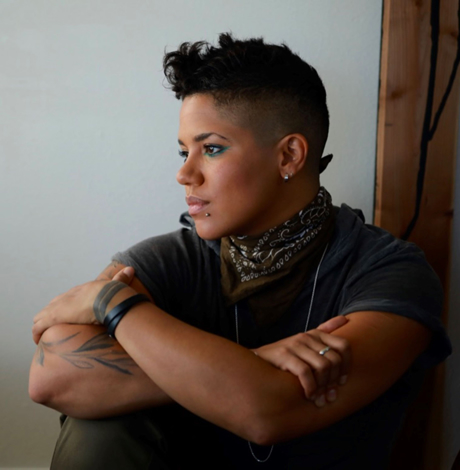Books
Jeremy Denk’s memoir proves he’s as gifted with words as with music
Gay pianist’s coming-of-age story has broad appeal
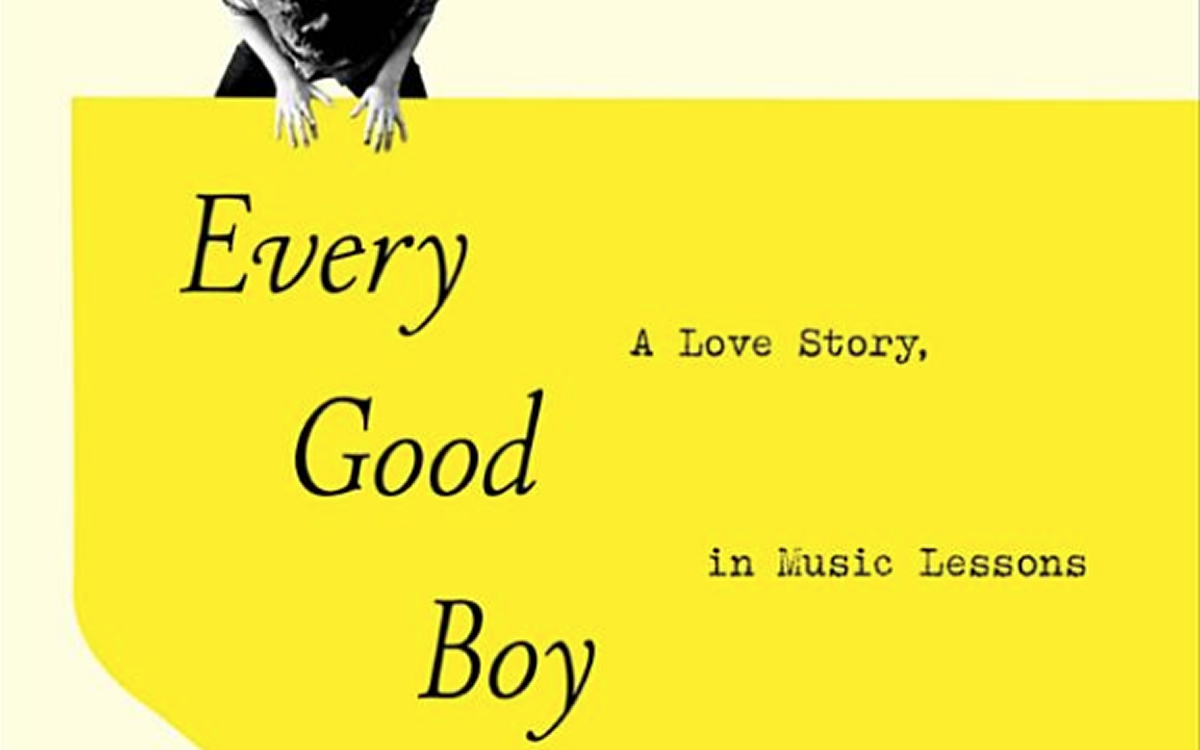
‘Every Good Boy Does Fine’
By Jeremy Denk
c.2020, Random House
$28.99/368 pages
When I was nine, my parents decided I should learn to play a musical instrument. A teacher in our town tried to get me to take to the guitar. “Her playing was remarkable,” he said, aiming for tact, but sounding as if he’d just bitten into a cat litter sandwich.
You might think “Every Good Boy Does Fine,” the new memoir by Jeremy Denk, the gay, MacArthur-genius-award-winning concert pianist, would have little appeal for musical philistines like me. Or that Denk’s coming-of-age story would only tickle the ivories of musicians and their aficionados.
But you would be wrong. Denk, a “New Yorker” writer, is a superb wordsmith. He’s as gifted with words as he is with the piano.
The memoir is structured around a through-line of musical lessons (in harmony, melody and rhythm). In these chapters, Denk writes with intelligence, wit, and wonderful metaphors of music and the arduous discipline and practice needed to learn to play the piano.
One day when he was 12, Denk, who was born in 1970, bought a cassette of Mozart’s “Sinfonia Concertante with the Cleveland Orchestra.” “I was the kind of kid who thought he’d already figured out Mozart,” Denk writes, “but could barely tie his shoelaces.”
Denk, winner of the Avery Fisher Prize, began piano lessons at age six. It was soon clear that he was talented.
From childhood on, Denk endured the tedium of practicing the piano. “Scales were the ultimate joyless task,” he writes, “an endless and recursive tedium.”
Denk’s family moved from North Carolina to New Jersey when he was six and from New Jersey to New Mexico when he was 10.
In New Mexico, Denk took lessons from William Leland, a New Mexico State University piano professor. In Oberlin College (which he entered at 16), he decided to become a musician.
In graduate school, Denk studied under the acclaimed pianist Gyorgy Sebok, and he received a Ph.D. from Julliard in 2001.
Denk’s writing about music and his teachers will be catnip to musicians and classical music fans. But his stories of sweat, competition, enduring criticism — nurturing one’s talent will resonate with everyone from athletes to artists to chefs to race car drivers.
Learning to be a concert pianist isn’t for the faint of heart. “‘Why are you fucking waiting?’ he yelled in my face,” Denk writes about a lesson with an acclaimed teacher, “coating me with a fine film of Scotch-scented saliva.”
Denk’s bio is proof that whatever doesn’t kill you makes you stronger. He’s emerged from the grueling lessons as a rock star! Denk’s recordings have reached #1 on the Billboard classical charts.
Thankfully, “Every Good Boy Does Fine” isn’t only the story of Denk’s professional growth. The memoir has a parallel, by turns funny, sad, ironic –gut-wrenching, narrative of Denk’s personal life.
His mother is an alcoholic. His Dad is demanding. His brother doesn’t know what to make of his obsession with classical music. Denk has a hard time becoming comfortable with being gay.
Denk knew early on that he was different from other kids. “I was eager to be brave,” he writes of the ecstatic moment at age 12 when he listened to the cassette of Mozart. “I wanted to share the moment with my parents.”
“But I worried,” Denk writes, “my father would make a joke, or my brother would think I was showing off, or my mother would ask why I hadn’t dusted the living room.”
Denk emerges from the memoir as endearingly human. He’s delighted to be kissed by Princess Diana (when he’s awarded the third prize in a competition).
“Why do you play so loud?” a man asks him in the bathroom after he’s performed a concert in Munich.
You’re happy with Denk when he finds love.
“Every Good Boy Does Fine” is one of the best memoirs I’ve read this year. It’s never out-of-tune.
The Blade may receive commissions from qualifying purchases made via this post.
Books
New book offers observations on race, beauty, love
‘How to Live Free in a Dangerous World’ is a journey of discovery
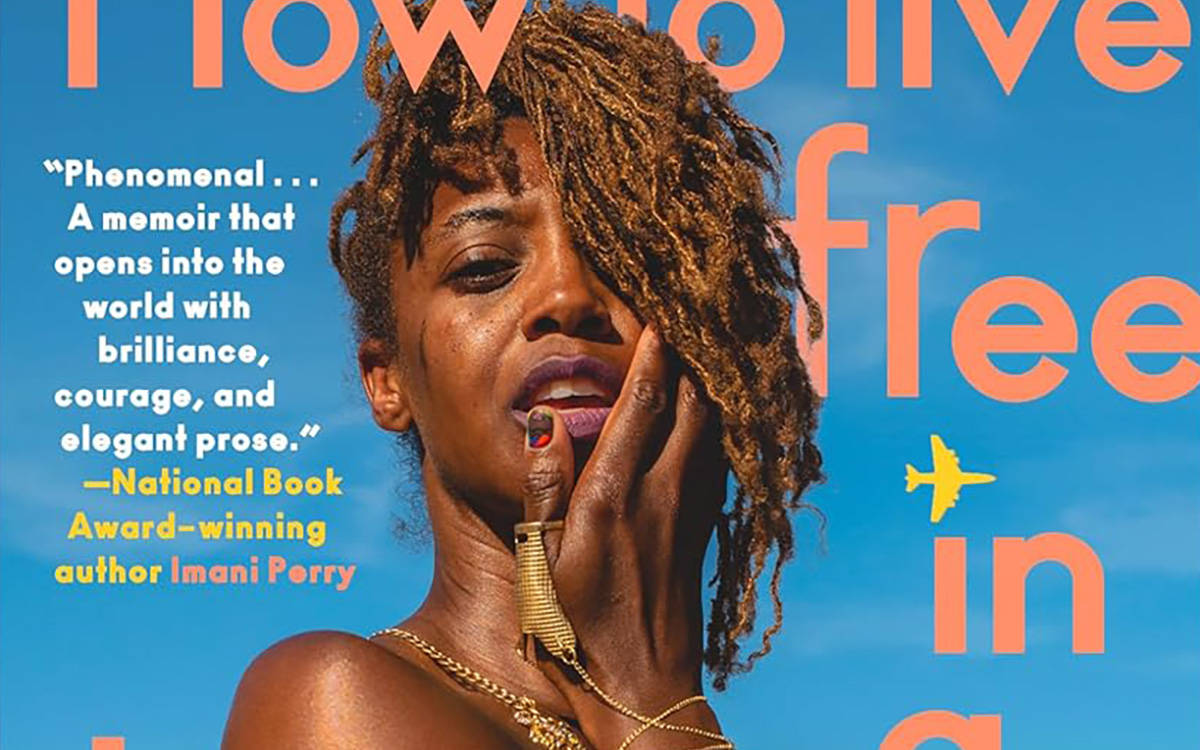
‘How to Live Free in a Dangerous World: A Decolonial Memoir’
By Shayla Lawson
c.2024, Tiny Reparations Books
$29/320 pages
Do you really need three pairs of shoes?
The answer is probably yes: you can’t dance in hikers, you can’t shop in stilettos, you can’t hike in clogs. So what else do you overpack on this long-awaited trip? Extra shorts, extra tees, you can’t have enough things to wear. And in the new book “How to Live Free in a Dangerous World” by Shayla Lawson, you’ll need to bring your curiosity.

Minneapolis has always been one of their favorite cities, perhaps because Shayla Lawson was at one of Prince’s first concerts. They weren’t born yet; they were there in their mother’s womb and it was the first of many concerts.
In all their travels, Lawson has noticed that “being a Black American” has its benefits. People in other countries seem to hold Black Americans in higher esteem than do people in America. Still, there’s racism – for instance, their husband’s family celebrates Christmas in blackface.
Yes, Lawson was married to a Dutch man they met in Harlem. “Not Haarlem,” Lawson is quick to point out, and after the wedding, they became a housewife, learned the language of their husband, and fell in love with his grandmother. Alas, he cheated on them and the marriage didn’t last. He gave them a dog, which loved them more than the man ever did.
They’ve been to Spain, and saw a tagline in which a dark-skinned Earth Mother was created. Said Lawson, “I find it ironic, to be ordained a deity when it’s been a … journey to be treated like a person.”
They’ve fallen in love with “middle-American drag: it’s the glitteriest because our mothers are the prettiest.” They changed their pronouns after a struggle “to define my identity,” pointing out that in many languages, pronouns are “genderless.” They looked upon Frida Kahlo in Mexico, and thought about their own disability. And they wish you a good trip, wherever you’re going.
“No matter where you are,” says Lawson, “may you always be certain who you are. And when you are, get everything you deserve.”
Crack open the front cover of “How to Live Free in a Dangerous World” and you might wonder what the heck you just got yourself into. The first chapter is artsy, painted with watercolors, and difficult to peg. Stick around, though. It gets better.
Past that opening, author Shayna Lawson takes readers on a not-so-little trip, both world-wide and with observant eyes – although it seems, at times, that the former is secondary to that which Lawson sees. Readers won’t mind that so much; the observations on race, beauty, love, the attitudes of others toward America, and finding one’s best life are really what takes the wheel in this memoir anyhow. Reading this book, therefore, is not so much a vacation as it is a journey of discovery and joy.
Just be willing to keep reading, that’s all you need to know to get the most out of this book. Stick around and “How to Live Free in a Dangerous World” is what to pack.
The Blade may receive commissions from qualifying purchases made via this post.
Books
Story of paralysis and survival features queer characters
‘Unswerving: A Novel’ opens your eyes and makes you think
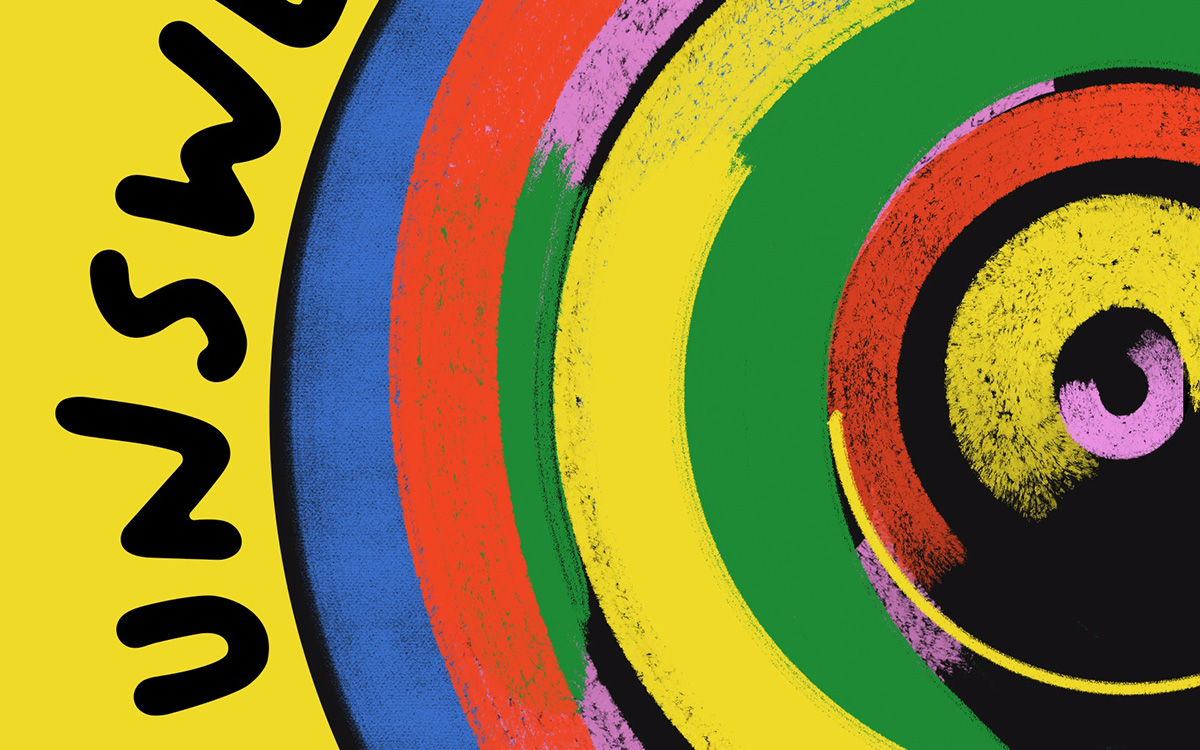
‘Unswerving: A Novel’
By Barbara Ridley
c.2024, University of Wisconsin Press
$19.95 / 227 pages
It happened in a heartbeat.
A split-second, a half a breath, that’s all it took. It was so quick, so sharp-edged that you can almost draw a line between before and after, between then and now. Will anything ever be the same again? Perhaps, but maybe not. As in the new book “Unswerving” by Barbara Ridley, things change, and so might you.

She could remember lines, hypnotizing yellow ones spaced on a road, and her partner, Les, asleep in the seat beside her. It was all so hazy. Everything Tave Greenwich could recall before she woke up in a hospital bed felt like a dream.
It was as though she’d lost a month of her life.
“Life,” if you even wanted to call it that, which she didn’t. Tave’s hands resembled claws bent at the wrist. Before the accident, she was a talented softball catcher but now she could barely get her arms to raise above her shoulders. She could hear her stomach gurgle, but she couldn’t feel it. Paralyzed from the chest down, Tave had to have help with even the most basic care.
She was told that she could learn some skills again, if she worked hard. She was told that she’d leave rehab some day soon. What nobody told her was how Les, Leslie, her partner, girlfriend, love, was doing after the accident.
Physical therapist Beth Farringdon was reminded time and again not to get over-involved with her patients, but she saw something in Tave that she couldn’t ignore. Beth was on the board of directors of a group that sponsored sporting events for disabled athletes; she knew people who could serve as role models for Tave, and she knew that all this could ease Tave’s adjustment into her new life. It was probably not entirely in her job description, but Beth couldn’t stop thinking of ways to help Tave who, at 23, was practically a baby.
She could, for instance, take Tave on outings or help find Les – even though it made Beth’s own girlfriend, Katy, jealous.
So, here’s a little something to know before you start reading “Unswerving”: author Barbara Ridley is a former nurse-practitioner who used to care for patients with spinal cord injuries. That should give readers a comfortable sense of satisfaction, knowing that her experiences give this novel an authenticity that feels right and rings true, no faking.
But that’s not the only appeal of this book: while there are a few minor things that might have readers shaking their heads (HIPAA, anyone?), Ridley’s characters are mostly lifelike and mostly likable. Even the nasties are well done and the mysterious character that’s there-not-there boosts the appeal. Put everyone together, twist a little bit to the left, give them some plotlines that can’t ruined by early guessing, and you’ve got a quick-read novel that you can enjoy and feel good about sharing.
And share you will because this is a book that may also open a few eyes and make readers think. Start “Unswerving” and you’ll (heart) it.
The Blade may receive commissions from qualifying purchases made via this post.
Books
Examining importance of queer places in history of arts and culture
‘Nothing Ever Just Disappears’ shines with grace and lyrical prose
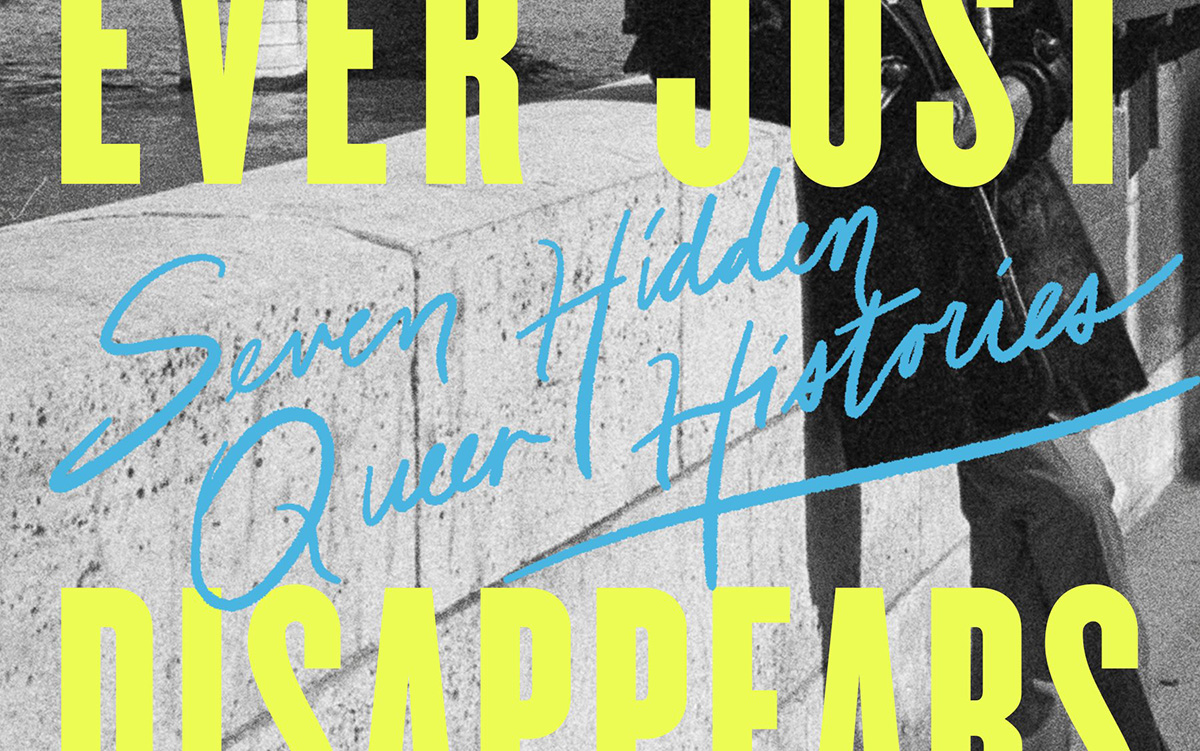
‘Nothing Ever Just Disappears: Seven Hidden Queer Histories’
By Diarmuid Hester
c.2024, Pegasus Books
$29.95/358 pages
Go to your spot.
Where that is comes to mind immediately: a palatial home with soaring windows, or a humble cabin in a glen, a ramshackle treehouse, a window seat, a coffeehouse table, or just a bed with a special blanket. It’s the place where your mind unspools and creativity surges, where you relax, process, and think. It’s the spot where, as in the new book “Nothing Ever Just Disappears” by Diarmuid Hester, you belong.

Clinging “to a spit of land on the south-east coast of England” is Prospect Cottage, where artist and filmmaker Derek Jarman lived until he died of AIDS in 1994. It’s a simple four-room place, but it was important to him. Not long ago, Hester visited Prospect Cottage to “examine the importance of queer places in the history of arts and culture.”
So many “queer spaces” are disappearing. Still, we can talk about those that aren’t.
In his classic book, “Maurice,” writer E.M. Forster imagined the lives of two men who loved one another but could never be together, and their romantic meeting near a second-floor window. The novel, when finished, “proved too radical even for Forster himself.” He didn’t “allow” its publication until after he was dead.
“Patriarchal power,” says Hester, largely controlled who was able to occupy certain spots in London at the turn of the last century. Still, “queer suffragettes” there managed to leave their mark: women like Vera Holme, chauffeur to suffragette leader Emmeline Pankhurst; writer Virginia Woolf; newspaperwoman Edith Craig, and others who “made enormous contributions to the cause.”
Josephine Baker grew up in poverty, learning to dance to keep warm, but she had Paris, the city that “made her into a star.” Artist and “transgender icon” Claude Cahun loved Jersey, the place where she worked to “show just how much gender is masquerade.” Writer James Baldwin felt most at home in a small town in France. B-filmmaker Jack Smith embraced New York – and vice versa. And on a personal journey, Hester mourns his friend, artist Kevin Killian, who lived and died in his beloved San Francisco.
Juxtaposing place and person, “Nothing Ever Just Disappears” features an interesting way of presenting the idea that both are intertwined deeper than it may seem at first glance. The point is made with grace and lyrical prose, in a storyteller’s manner that offers back story and history as author Diarmuid Hester bemoans the loss of “queer spaces.” This is really a lovely, meaningful book – though readers may argue the points made as they pass through the places included here. Landscapes change with history all the time; don’t modern “queer spaces” count?
That’s a fair question to ask, one that could bring these “hidden” histories full-circle: We often preserve important monuments from history. In memorializing the actions of the queer artists who’ve worked for the future, the places that inspired them are worth enshrining, too.
Reading this book may be the most relaxing, soothing thing you’ll do this month. Try “Nothing Ever Just Disappears” because it really hits the spot.
The Blade may receive commissions from qualifying purchases made via this post.





